Dry January? Make your taste buds tingle with a fruit shrub recipe: cranberry-orange-pomegranate-clove or pineapple-rosemary-ginger.
Dry January 2023
If you’re locking up the liquor cabinet and picking up the seltzer water this January, you’re not alone. In December, one in five adults indicated they would participate in Dry January, abstaining from alcohol for the length of the month.
Whether you are using January as a chance to detox your system, reassess your drinking habits, or launch into long-term sobreity, you can rest assured you’ve started 2023 off well.
Immediate Health Benefits of Not Drinking
Alcohol is a depressant, so one of the most immediate effects you will feel as you abstain from alcohol is an increase in energy and mental clarity. After a month without drinking alcohol, you’ll be sleeping better overall and be much better hydrated.
Note: If you’re reading this over a mimosa or silently kicking yourself for the beer you sipped on last night, please don’t! Be gentle with yourself. The Gregorian calendar tells us we start again every January 1, but as you know, each day–each minute–gives us another chance to reassess where we are and what we want to do. It’s never too late to jump into Dry January — Dry July has a nice ring to it too!
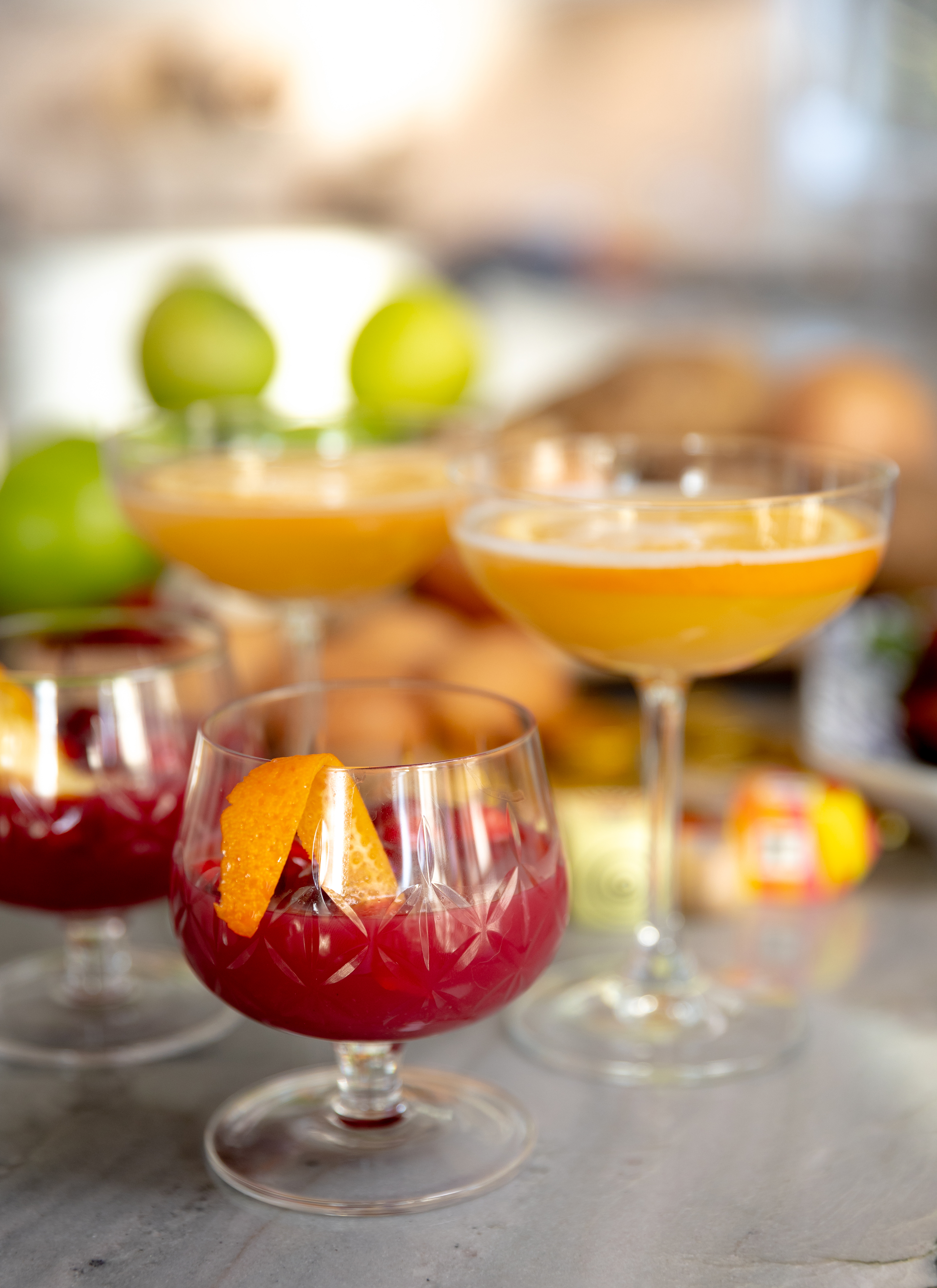
When Seltzer Won’t Cut It
Of course, Dry January and resolutions overall can only be truly effective if the habits we learn from them are sustainable for the long term. Rather than seeing this as a month where you aren’t allowed to drink alcohol, it could be more beneficial to reframe your goal as a month where you can try out different recipes for new delicious beverages. A little bubbly water can go a long way, but when your taste buds are craving something more substantial, adding a delicious fruit shrub might be the way to go.

Enter the Shrub: A Tasty Non-Alcoholic Beverage
If you haven’t heard, a shrub is a sweetened, vinegar-based syrup often infused with fruit, herbs, and other spices. The term “shrub” is borrowed from the Arabic word sharāb meaning “to drink.”
Another term for shrub is “drinking vinegar,” which is an apt description; we’d also like to add “delicious and fruity” as well as “offers a satisfying bite.” They are packed with probiotics, digestive enzymes, and antioxidants. One of the many reasons people turn to shrubs during Dry January is because of what you might call the “adult taste” of a shrub: the bite, or kick, of the combination of fruit and vinegar can scratch the itch when your taste buds are craving a cocktail. Please note that if you ferment this longer than we do, there is a good chance alcohol will be made, so longer is not better for our goal this month. More on fermentation in this great YouTube video with John Kohler: https://youtu.be/nz9SZ23WuGQ.
In our test kitchen we tried out two shrub recipes: one featuring cranberries, oranges, and pomegranates, and another made up of pineapple and ginger juice. We used stage one to grind the ingredients. All of it, spices, peels, cores, everything. This increased the surface area of the produce and we found that this step cut the fermentation process from three days to two.
Pro tip: Some recipes call for distilled white vinegar or white wine vinegar for a shrub, but we prefer to use apple cider vinegar, which has been shown to have many health benefits.
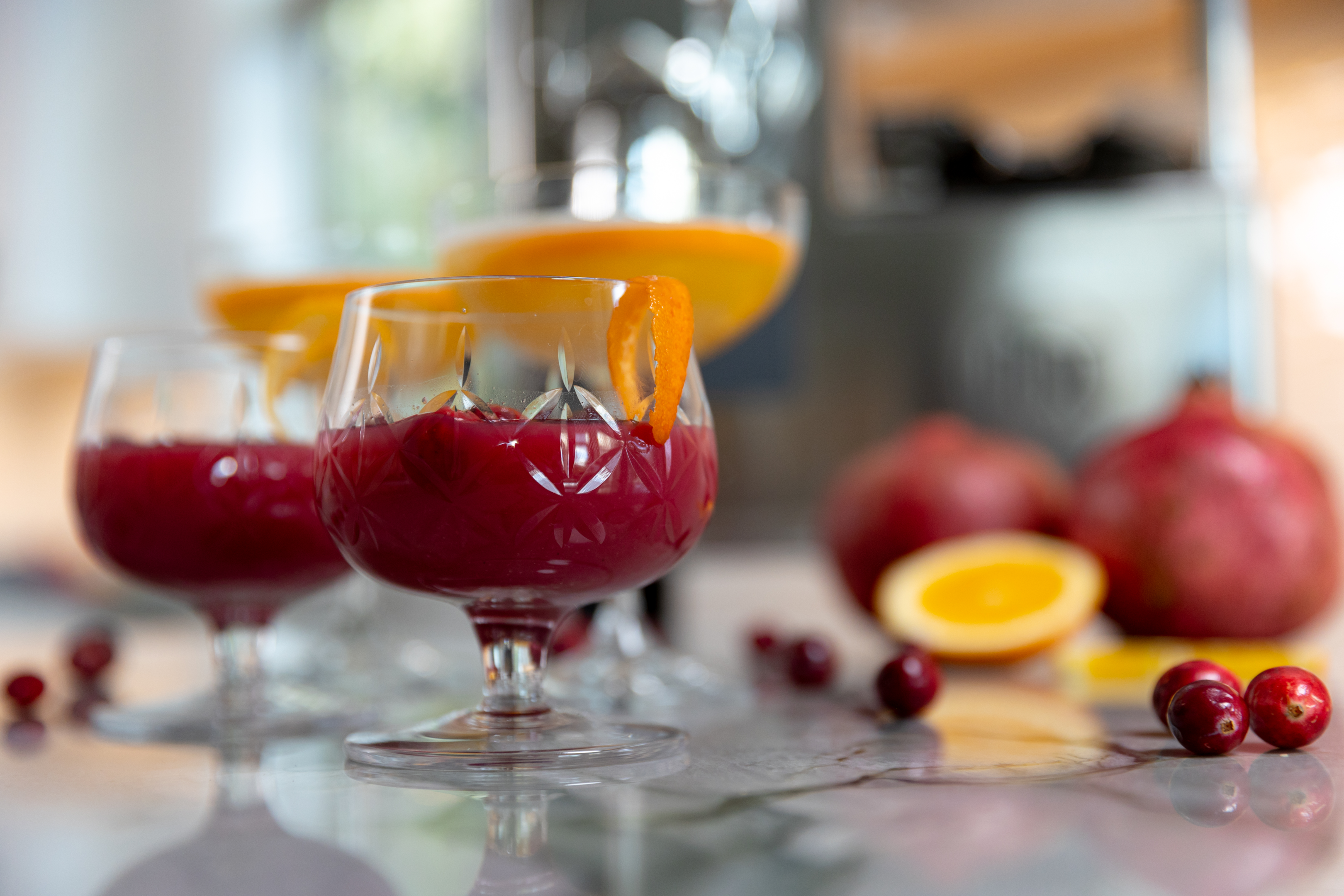
Cranberry-orange-pomegranate-clove shrub
Tannins from the pomegranates make this a delicious mocktail.
Ingredients
- cranberries
- oranges
- pomegranates
- cloves
- agave
- apple cider vinegar
Directions
- Grind cranberries, oranges, pomegranates, and cloves (no grid plate needed).
- Scoop mash into a jar and add agave, let sit for 2 days.
- Strain, wrap contents and press.
- Add one part to 8 of apple cider vinegar (¼ cup to 2 cups to start)
Pro tip: use extra orange peel to garnish your glasses!
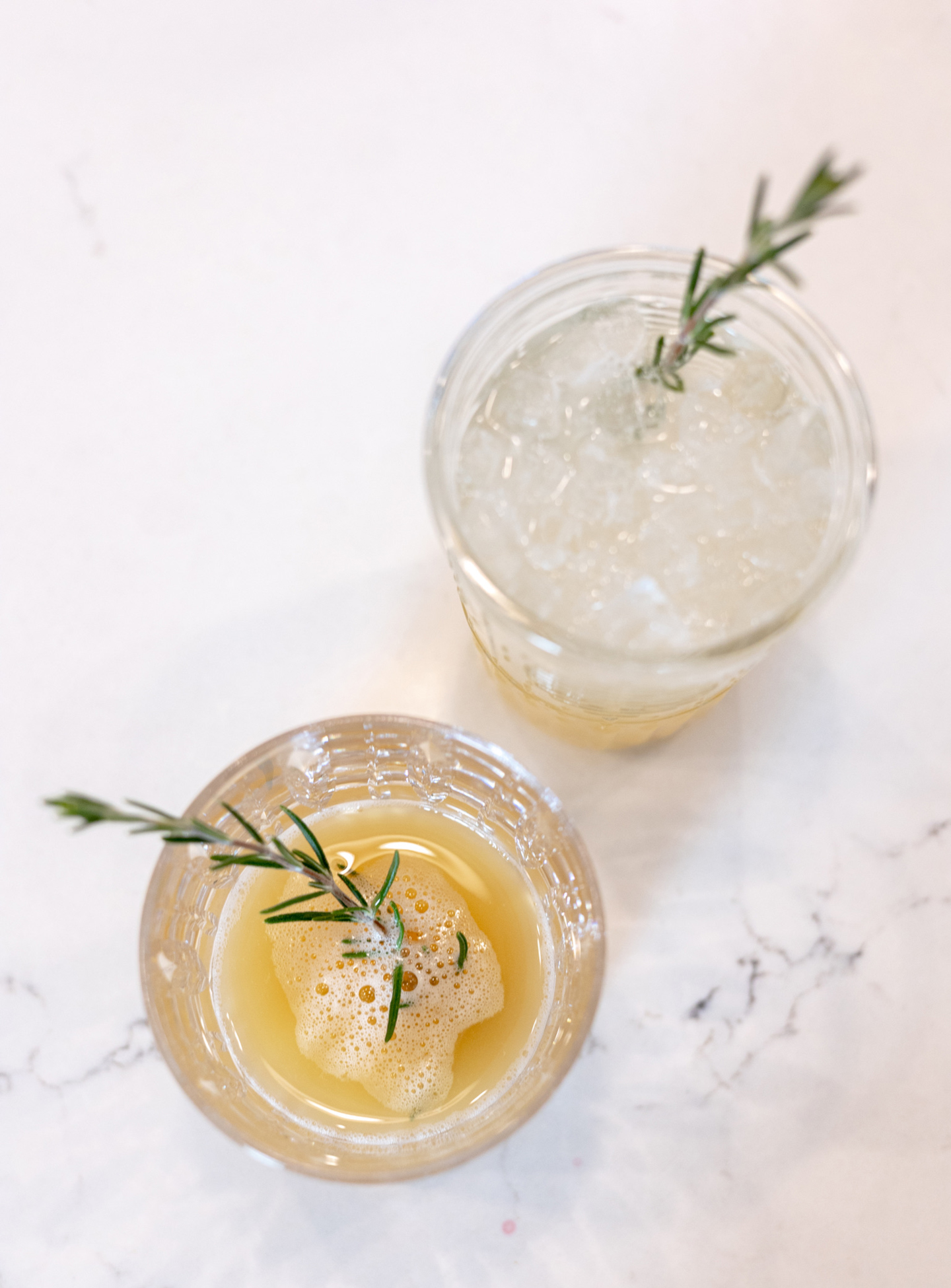
Pineapple-ginger-rosemary shrub
Ingredients
- pineapple
- ginger
- rosemary
- agave
- apple cider vinegar
Directions
- Grind pineapple, ginger, and rosemary (no grid plate needed).
- Scoop mash into a jar and add agave, let sit for 2 days.
- Strain, wrap contents and press.
- Add one part to 8 of apple cider vinegar (¼ cup to 2 cups to start)
How Will You Drink Your Shrub?
Shrub syrup tastes delicious as a mocktail: try it with sparkling water, tonic water, ginger beer or ginger ale. If you leave the syrup for a few more days, the flavor will mellow out, and you can pour it over ice.
(And yes, it tastes pretty great with vodka, gin, and bourbon, too, but that’s not what we’re here for, is it?)
How Long Will a Homemade Shrub Last?
If you store your shrub in an airtight container, it should not need refridgeration. That said, if you have space in your fridge, jeeping the shrub cool won’t hurt it.
Once you open the shrub, it’s a good idea to keep it in the fridge. It should last anywhere from 6 months to a year.
Cold Press Juice will Do the Trick
At PURE, we pride ourselves on trying a wide variety of tasty cold-pressed juices and sharing the recipes with you. If you’re looking for additional tasty beverages to get you through Dry January, check out these recipes: orange chili matcha cocktail, powerhouse cranberry pomegranate juice, and ginger turmeric orange lemon immunity shots.
Health Benefits
cranberries: made up of 90% water, cranberries are mostly carbs and fiber and contain such crucial vitamins as vitamin C, vitamin E, vitamin K, and manganese. Research has linked cranberries to a lower risk of urinary tract infections, improved immune function, the prevention of certain types of cancer, and decreased blood pressure.
oranges: packed with phenolic compounds like hesperidin and naringenin, oranges are chock full of antioxidants and anti-inflammatory properties. Oranges are also a great source of vitamin c, fiber, folate, potassium, calcium, and thiamine.
pomegranates: great for digestion, pomegranates are full of vitamin C, calcium, iron, magnesium, phosphorous, potassium, and folate. The nutrients in pomegranates protect the body from Alzheimer’s disease and arthritis, promote a healthy memory, and can increase sexual and athletic performance.
cloves: the flower buds of the evergreen clove tree, cloves are a sweet spice used in traditional medicine. Evidence has shown cloves have several health benefits, including helping to stabilize blood sugar levels and supporting liver health.
pineapple: delicious and packed with antioxidants, pineapples are known for their anti-inflammatory properties that can aid in a healthy immune system. Pineapples are a rich source of Vitamin C, manganese, and the compound bromelain, a group of digestive enzymes that may help break down protein and aid with digestion and could help fight against cancer.
ginger: ginger contains gingerol, considered to be powerfully medicinal and anti-inflammatory, prevents nausea and can help treat chronic indigestion, and may also drastically lower blood sugar levels and heart disease risk factors.
rosemary: regularly consuming rosemary may lead to a healthier immune system, thanks to its high antibacterial, antiviral, and antifungal properties. Rosemary is high in manganese, which helps injuries heal faster by aiding the blood-clotting process, and also contains carnosic acid, which is known to slow the growth of cancer cells.
apple cider vinegar: a centuries-old, popular home remedy, apple cider vinegar offers antimicrobial and antioxidant effects, and there is evidence to show it can also aid in weight loss, lowering blood sugar levels, reducing cholesterol, and improving the symptoms of diabetes.
Sources
Are Cranberries Healthy? 6 Surprising Benefits
Oranges: Nutrients, Benefits, Juice, and More
Pomegranate: 10 Health and Nutritional Benefits
Pineapple: 8 Impressive Health Benefits
11 Proven Health Benefits of Ginger
6 Benefits of Apple Cider Vinegar, Backed by Science
8 Surprising Health Benefits of Cloves
6 Benefits of Apple Cider Vinegar, Backed by Science
Medical Disclaimer
PURE Juicer is a juicing company. We are not doctors or medical experts. All content and information on this blog and website is for informational and educational purposes only, does not constitute medical advice, and does not establish any patient-client relationship by using this website.
Although we strive to provide accurate general information, the information presented here is not a substitute for professional advice. You should not rely solely on this information. Always consult a professional in your area for your health questions and concerns before making any professional, legal, medical, financial, or tax-related decisions.
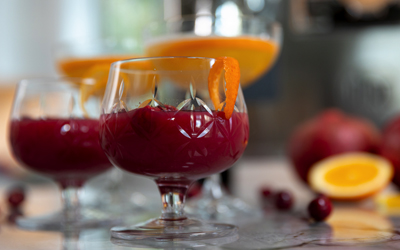
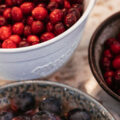


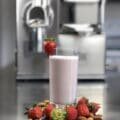








Kim Tennican says:
is it essential to add agave or other sweetener? Is this important for the fermentation process? How about just the mash and apple cider without sweetener?
PURE Juicer says:
This is a great question. We did talk to John Kohler who is a huge fan of fermentation. He prefers to use juices like pineapple juice. This may change the fermentation process as the microbes eat and convert sugar but we do believe that juice only is a possibility.